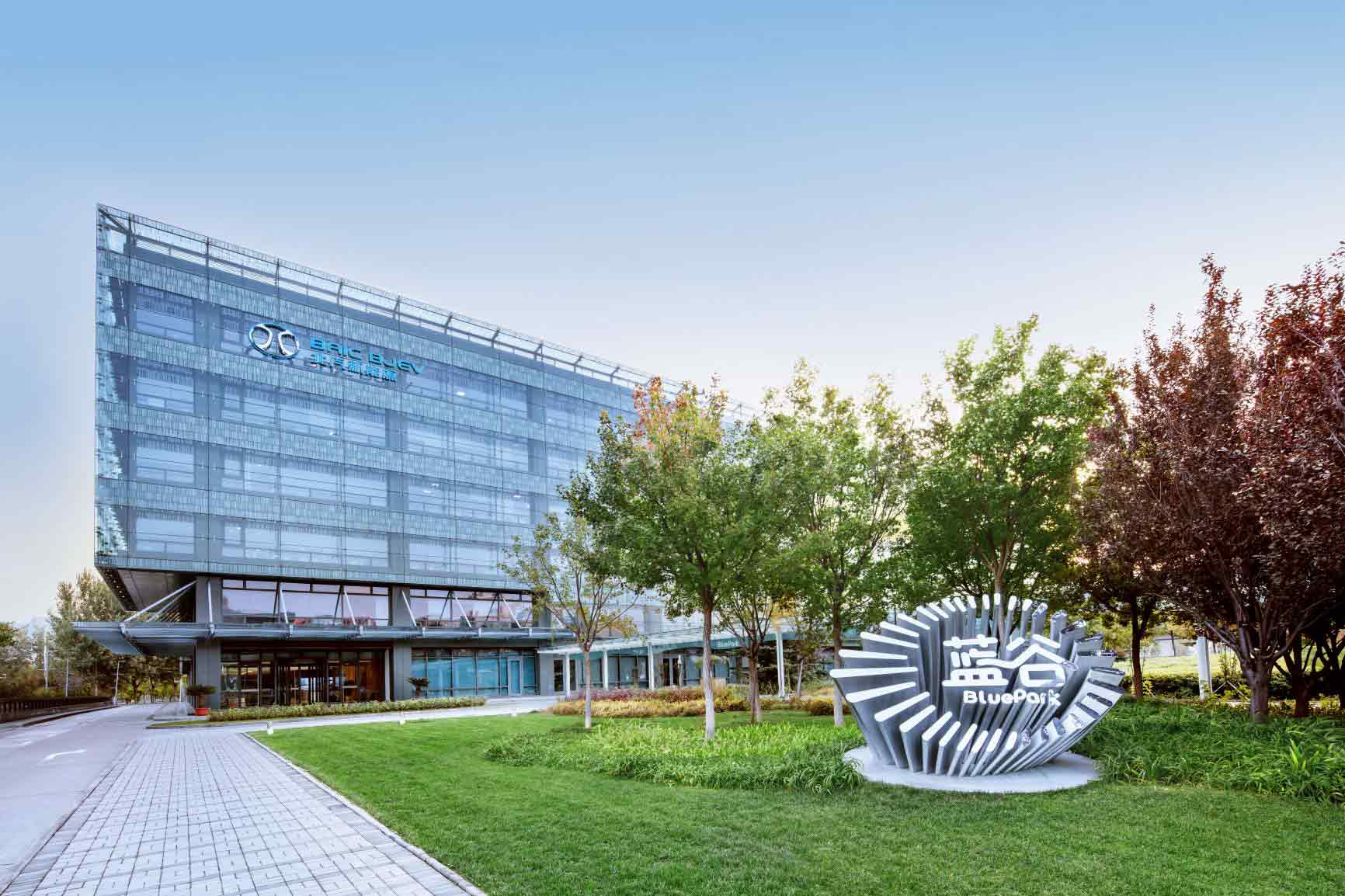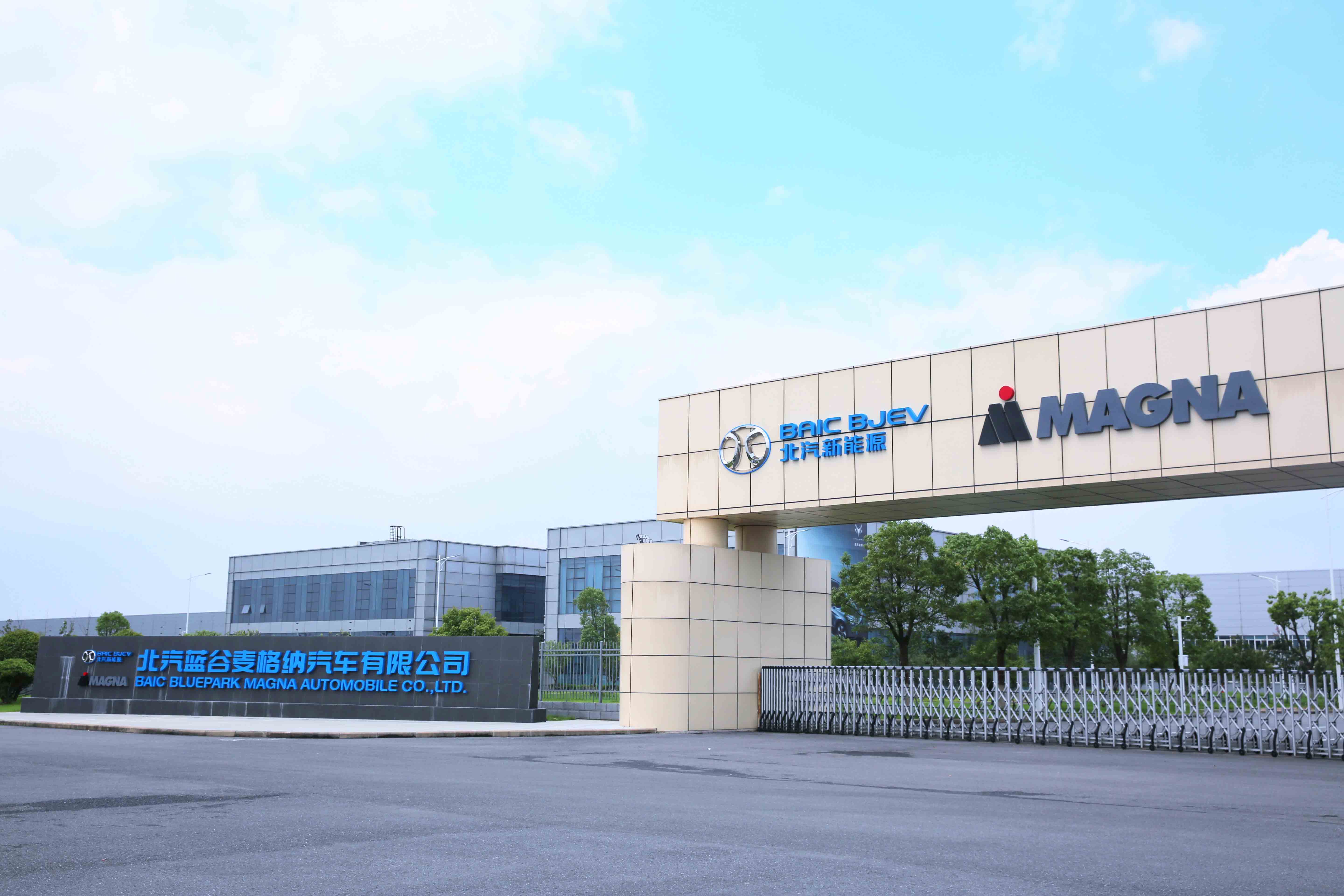- Article

- Infrastructure and Sustainable Finance
- General Sustainability
HSBC Green Link | An Energy Revolution of the Century through the Lens of BAIC BJEV
Businesses must now take proactive measures in support of China’s decarbonisation strategy for sustainable development and high-quality growth. Stay tuned for “HSBC Green Link” series on real-life “green stories” of businesses across sectors.
From horse-drawn carriages to vehicles running on fuel, the 19th Century saw a major change in power source for the auto industry. The auto industry in the 21st century is undergoing yet another revolution marked by a shift from fossil fuel to electric power. In 2021, during the plenary sessions of the NPC and the CPPCC, carbon peak and carbon neutrality were, for the first time, written into the government work report, creating new momentum for the development of the new energy vehicle (NEV) industry with explosive supply-side-driven growth against headwinds. In the same year, China has recorded 2.989 million units in retail sales of NEVs, up 169.1% year-on-year, far exceeding the projection by China Association of Automobile Manufacturers at the beginning of the year.
A booming NEV industry clearly helps to cut China’s overall carbon emissions and is seen as an important strategy to promote sustainable development of China’s green economy. This revolution will present new opportunities across the entire value chain of the auto industry from OEMs to parts suppliers and all the way to semiconductor providers. In this revolution, BAIC BJEV stands as both a witness of history and a rider on the trend itself.
Since its incorporation in 2009, BAIC BJEV has been focusing exclusively on the pure EV market. Anchored in the mission of “Weilan”, or literally, “Keeping the Sky Blue”, the company launched a succession of strategic campaigns including the “Blue Sky Pioneers”, “Blue Sky Sharing A+” and “Blue Sky Innovation” in support of China’s decarbonisation efforts for the auto industry. In 2020 alone, BAIC BJEV’s NEVs have recorded a total mileage of 18.3 billion kilometers, avoiding an emission of 1.94 million tons, equivalent to 11.37 million trees planted.
By the end of 2021, BAIC BJEV had recorded cumulative sales of 620,000 units of pure EVs. In addition to being an automaker and seller, BAIC BJEV is also a supplier of a full spectrum of green mobility solutions spanning battery charging, commercial operation, trade-in, servicing and timeshare. Committed to promoting wider use and development of NEVs and pure EVs, BAIC BJEV has been advancing infrastructure development for NEVs.
As the world’s first company to introduce battery swapping for taxis on a commercial scale and the biggest battery swapping service provider in China, BAIC BJEV has deployed some 34,000 swappable EVs in 22 cities, including Beijing, Xiamen, Lanzhou and Guangzhou, with a total of 280 swap stations established so far.
Executing its vision for battery swapping, BAIC BJEV is rolling out swappable products while promoting and running swap stations across the country with ongoing technological upgrades. With the launch of its latest swap station 4.0, it takes only 30 seconds to perform a single battery swap and the vehicle will be ready to go in 1.5 minutes; its Arcfox supercharger, working at a maximum power of 180kW per unit, adds 197 kilometers of range on a 10-minute charge.
Amidst an industrial revolution with many hurdles to cross, it is crucial for NEV manufacturers to build better products and adopt a green management system in order to secure a core competitive edge in a narrow window of time before a new competitive landscape among incumbents kicks in. BAIC BJEV takes a three-pronged approach including putting in place a proper decarbonisation framework for the full life cycle of products, developing the cutting-edge “two-saves and one-smart” technology for better performance in emission reduction, and strengthening low-carbon business collaboration and exchange on the latest technologies and solutions.
“The first step is to have a proper decarbonisaton framework for the full life cycle of products, including setting product-specific targets, exploring low-carbon paths for three categories: raw materials, parts and vehicles, defining the role of each in emission reduction and combing R&D, procurement and production in building a carbon database. Virtual simulation will also be enhanced to drive a more efficient R&D process for low-carbon technologies”, a BAIC BJEV executive explained.
While sharpening its technological edge, BAIC BJEV also faces the challenges from its supply chain. To conserve energy and cut emissions from its supply chain and logistic operations, BAIC BJEV has proposed four paths: First, establish a carbon traceability database for first-hand information of carbon emission from the supply chain; second, build an effective supply chain management system to better manage towards low-carbon targets; third, pilot low-carbon projects in the supply chain to gradually transition towards low-carbon parts; fourth, break “strangleholds” in key low-carbon technologies.
It’s worth noting that while R&D capabilities and technological competitiveness remain crucial to NEV manufacturers, it is also of paramount importance for them to have the ability to cut costs and improve economic return with the help of green financial products, all the while honoring in earnest their commitment to green and high-quality development.
In January 2022, HSBC extended a working capital loan of RMB 300 million to BJEV, a subsidiary of BAIC Group, for the development and manufacturing of NEVs under BAIC’s own brand.
“This very first deal between BAIC BJEV and HSBC marks the beginning of a new win-win collaborative relationship between us. HSBC has been committed to supporting green and sustainable industries and has paved the way for us to get off to a flying start in the new year”, the BAIC BJEV executive said.
In addition to regular working capital loans, the two parties are also in the process of structuring factoring products that are eligible for government subsidies under the latest policy on new energy.
The auto industry has always been a key component of global energy conservation and emission reduction efforts. With steady progress towards China’s decarbonisation goals, major local automakers such as BAIC BJEV are poised for compelling growth opportunities for their own brands. HSBC will continue to deliver innovative green financial solutions to support our clients in transitioning towards a greener future.
|
“Green finance provides fertile soil for achieving carbon peak and carbon neutrality. Renewed growth of corporates powered by green and low-carbon transformation will in turn drive the transformation and development of financial institutions”, said the BAIC BJEV executive, recognizing the crucial role of financial institutions, led by banks, in catalysing the auto industry’s transition towards a green and low-carbon economy. “Going forward, we expect to further strengthen our collaboration with HSBC across wider areas, on deeper levels and along extended industry chains, in order to spark further financial innovation and drive increased capital flow.”
Article Source: Yicai
Author: Yuanke Zhang
Helping Transition to a Low-Carbon Future
Let us be your partner to help you with the transition to a sustainable business model





